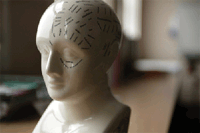Mood swings of bipolar patients can be predicted, study shows
21 Apr 2011
The future mood swings of people with bipolar disorder can be predicted by their current thoughts and behaviour, reveals a new study.
 Psychologists from the Universities of Manchester and Lancaster say their findings are important because they mean talking therapies, like cognitive behavioural therapy (CBT), could prove effective treatments for the condition.
Psychologists from the Universities of Manchester and Lancaster say their findings are important because they mean talking therapies, like cognitive behavioural therapy (CBT), could prove effective treatments for the condition.
People with bipolar are prone to extreme mood swings that take them from great emotional highs to the pits of depression; the cause of these mood swings is often put down to the patients' genes and biology rather than their own thoughts and actions.
For this latest study – published in the American Psychological Association journal Psychological Assessment – the researchers followed 50 people with bipolar disorder for a month. The team found that the patients' thinking and behaviour predicted their future mood swings even when their medical history had been accounted for.
''Individuals who believed extreme things about their moods – for example that their moods were completely out of their own control or that they had to keep active all the time to prevent becoming a failure – developed more mood problems in a month's time,'' said study lead Dr Warren Mansell, in Manchester's School of Psychological Sciences.
''In contrast, people with bipolar disorder who could let their moods pass as a normal reaction to stress or knew they could manage their mood, faired well a month later. These findings are encouraging for talking therapies – such as CBT – that aim to help patients to talk about their moods and change their thinking about them.''


















